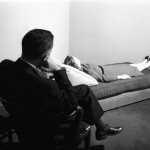Hi, I’m Doug Beaton, and this is my thirtieth year helping people in the Merrimack Valley file bankruptcy, get through the process, and come out stress-free on the other side.
Here are a few free tips if you have been thinking about giving yourself a fresh-start:

1. Be sure to separate fact from fiction: Law is a profession that is often shrouded with myth. Remember the “reading of the will” scene in all those mysteries? Never happens in real life. And bankruptcy law has more than it’s share of myth and legend.
I think the reason is that most people are reluctant to talk about their financial problems with friends, so instead of information, a lot of the same old myths get passed around.
One of the perennial myths is that debtors will “lose all their property” if they file. But just the opposite is true; over 99 percent of bankruptcy filers lose NOTHING during their case. Another is that bankruptcy “can’t get rid of taxes.” This is false as an absolute statement (lots of taxes can be discharged in bankruptcy), but it is sometimes true for certain tax returns; a complete answer depends on the kind of tax and the years involved, and requires a bankruptcy lawyer to sort it out.
So before you jump into bankruptcy — or run away screaming — make sure you are basing your decisions not on myth or rumor, but on the actual rules that will apply to your case.

2. You’re going to need to get some counseling: Not a complete Freudian analysis, mind you, and nothing with electric shocks either! But since 2005, every person filing for bankruptcy has to take an approved credit counseling session before they file a case. Unfortunately, if you have already been to a credit counseling group, it probably doesn’t count. What is required is a short one-hour session with a government-approved provider, specifically for the bankruptcy filing, which results in you being issued a certificate of completion.

In the Internet age, the vast majority of counseling sessions take place on the web, using a chat-room interface. There is an option to do it by phone with a toll-free number. In-person counseling is dwindling, but might be available in a few areas.
Here’s some tips about this counseling: First, some lawyers buy these sessions in bulk, mark them up, roll the price in to the fee, and force you to deal with the agency they have selected at an inflated price. On the other hand, other lawyers do nothing more than point you to the court’s web site and let you figure it out yourself. (This is usually the sign of a lawyer who doesn’t handle many bankruptcy cases).
My own approach is to split the difference: I will steer you to a trusted counselor that charges about $25. You pay them directly, I’m not taking a cut of the deal. I can also point you to some cheaper alternatives.
Another tip is that husbands and wives can take the counseling together, (assuming they are still on speaking terms!), and save half the price.
 3. Don’t wait until you’re tapped out. There’s an old saying among lawyers — “Bankruptcy is not for paupers.” Simply put, it costs money to file a case, so you don’t want to put it off so long that your funds are so low that you can’t even go bankrupt — think about how much of a bind that would be! With that said, there are ways of easing the monetary pain associated with filing. For the cost of your lawyer, my firm offers low down payments to start, sliding scale fees for Chapter 7 cases that are based on your recent income, and the option for some debtors to file a payment plan bankruptcy where your legal costs are partly paid monthly on a pay as you go basis. Before you hire any bankruptcy law firm, make sure that you go with one that has some flexibility and options on legal fees. As for the court’s filing fee, in some cases that can be paid in four installments as well.
3. Don’t wait until you’re tapped out. There’s an old saying among lawyers — “Bankruptcy is not for paupers.” Simply put, it costs money to file a case, so you don’t want to put it off so long that your funds are so low that you can’t even go bankrupt — think about how much of a bind that would be! With that said, there are ways of easing the monetary pain associated with filing. For the cost of your lawyer, my firm offers low down payments to start, sliding scale fees for Chapter 7 cases that are based on your recent income, and the option for some debtors to file a payment plan bankruptcy where your legal costs are partly paid monthly on a pay as you go basis. Before you hire any bankruptcy law firm, make sure that you go with one that has some flexibility and options on legal fees. As for the court’s filing fee, in some cases that can be paid in four installments as well.

4. Take heed of one of the most important rule in bankruptcy — “List It or Lose It! Earlier I mentioned that 99 percent of bankruptcy filers keep all their property. That should be of some comfort to you, and is something to keep in mind when you make out your bankruptcy schedules.
You should think of ALL your property as being “in” the bankruptcy case (because it is). Almost all property can be protected by exemptions, but you need to be honest upfront about what property you own. There is NO guarantee that a bankruptcy judge will let you add in omitted property later (although it might happen). So its much easier to lose property by leaving it out, rather than declaring it properly in the first place.

5. It’s never too early to begin preparing for your bankruptcy “hearing.” Debtors are often scared out of their minds when they find out they must attend a “meeting of creditors” as part of their case. They shouldn’t be.
These hearings usually involve routine questions posed by a bankruptcy trustee, and it’s pretty rare for creditors to show up for a consumer case.
As to what questions you will have to answer, the very first one is easy: you will need to show the trustee a photo ID and your social security card. Many debtors have long ago misplaced this card, so if you want to ease your nerves, apply for a replacement now, and you can rest easy when the day for the hearing arrives.
In a pinch, you can also use a W-2 form or 1099 if it has your full social security number on it, but you can’t rely on your 1040 tax forms as proof of identity.

6. Don’t even think of raiding your retirement accounts to pay off creditors: This is one of the saddest mistakes I see people make, and if just one person reads this and pulls his hand out of the retirement piggy bank, this whole site will be worth it.
Retirement accounts like the typical 401(k) and most pension plans are 100 percent protected in bankruptcy. Individual Retirement Accounts are also protected up to $1 million, which covers just about everyone who files. There is no good reason for using retirement funds to pay unsecured creditors! Here the rule is really simple — just don’t do it!

7. Ease up on the use of credit before you file: You know where I’m headed here: don’t even think of booking a Caribbean cruise on your credit cards before filing a case. Bankruptcies are audited like tax returns are, and this move is a sure loser.
Beyond such a flagrant violation, you do have to be careful with the use of credit right before (approximately three months) filing a bankruptcy case. Another thing you probably don’t want to get into is “surfing” your credit card balances by taking advantage of those 0% offers flooding your mailbox. While this won’t raise the red flags like the cruise will, it does have the potential to tie up your case in the system for months, as the bankruptcy trustee tries to reverse all these transactions.
A special case involves a consumer with an older car that is giving signs that it’s on its last legs. Should you take out a loan for a car that will last a bit longer? This actually involves a sticky application of the rules, and if you find yourself in that situation you should discuss your options with a bankruptcy attorney before you file a case.
WHAT’S THE NEXT STEP?
* Want to read even more tips? Click here!
* If you are looking for more information on a specific topic, scroll up and enter the topic in the SEARCH FOR INFO box on the right. (You could try “exemptions” or “foreclosures” for example).
* If you are thinking “Sign me up, I want to get going!” you can click here to send me a message and I will contact you for an appointment for a free consultation.
* If you are on the fence or would like to speak to me directly, call me at (978) 975-2608 or click here and send a message.
* Click here to find out more about attorney Beaton, or for more about this law firm, click here.
